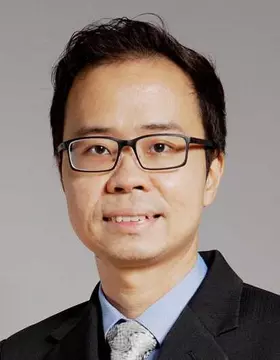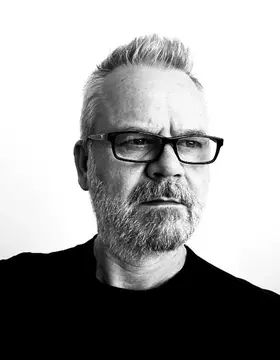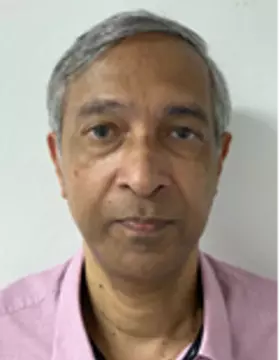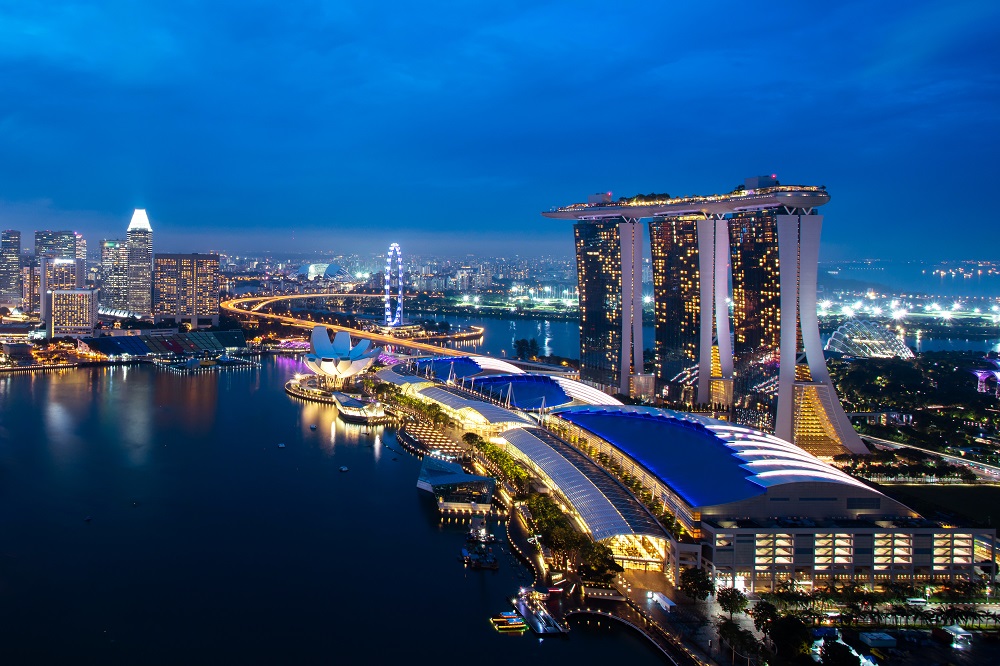
About Course
This course provides a comprehensive overview of low-carbon buildings, focusing on their significance for sustainable development goals with an emphasis on the engineering aspects of building design and operation.
It covers the latest trends, technologies, and best practices in building design, construction, and operation for low carbon buildings. The course also explores the role of building materials, construction techniques, and engineering systems in achieving low-carbon buildings. Various strategies, technologies, and approaches for reducing greenhouse gas emissions in areas such as HVAC, electrical services, water resources, and indoor air quality will be discussed. The challenges, opportunities, and engineering solutions for low-carbon buildings in different contexts will be examined, along with an exploration of the policies, regulations, and incentives associated with low carbon buildings. The new SIT Punggol campus, home to two super low energy buildings, will be used as a living lab to demonstrate the best-in-class energy-efficient buildings.
Who Should Attend
Prerequisites
Basic understanding of the design, construction, and operation principles of building energy systems
Learning Outcomes
- Understand the latest trends, technologies, and best practices in building design, construction, and operation for energy-efficient and sustainable buildings
- Evaluate energy efficiency strategies, sustainable building design, green materials, renewable energy systems, indoor environmental quality, and building automation systems
- Apply principles and methods to analyse, design, and operate energy-efficient and sustainable buildings
- Utilise tools to assess the environmental impact and life cycle analysis of building materials and products
- Conduct a building energy and sustainability audit and identify opportunities for improvement
Upon completion of the course, learners will be able to:
Gain a comprehensive understanding of net-zero building principles, including design and construction strategies
Learn about building automation, energy management systems, and indoor environmental quality control
Explore sustainable water management, material usage, and advanced energy-efficient technologies
Understand performance metrics, building audits, and analysis to optimise efficiency
Acquire knowledge and skills to evaluate building performance
Learn the competency to identify areas for improvement and implement strategies that maximise building sustainability and occupant comfort and health in a net-zero energy and carbon context.

The course will be delivered through a combination of lectures, interactive discussions, hands-on exercises, and case studies. The delivery method will emphasise active participation and group activities to facilitate learning. Learners will also be provided with course materials and additional resources such as recommended readings, online resources, and case studies to enhance their understanding and skills.
Teaching Team

Er. Dr. Lock Kai Sang
Professor, Engineering, Singapore Institute of Technology

Steve Kardinal Jusuf
Associate Professor, Engineering, Singapore Institute of Technology

Zhao Mingshan
Assistant Professor, Engineering, Singapore Institute of Technology

Dr. Soh Chew Beng
Assoc Professor/Deputy Cluster Dir, Engineering, Singapore Institute of Technology

Joseph Loh
Vice President, Business and Operation of G-Energy Global Pte Ltd

Kevin Sturrock
Director, DP Lightning Pte Ltd

Er. Leow Yock Keng
Principal Manager, Green Mark Department (Environmental Sustainability Group), Building and Construction Authority

Dr. Lal Jayamaha
Founder & CEO, LJ Energy Pte Ltd

Gerry Wee Hwee Joon
Associate Vice President, Estates, Singapore Institute of Technology

Ho Chee Kit
Chief Engineer and Net Zero Carbon Director, Cushman & Wakefield

Jia Min
Digital and Consultancy Services Lead, Services Business, Schneider Electric
Course Details
Schedule
-
Day 1
Topic: Introduction, green materials, sustainable design and construction
session Topic Morning session 1 Introduction to energy efficient and sustainable buildings
- Regulatory framework for the environmental sustainability of buildings
- Singapore code of environmental sustainability for new and existing buildings
- Singapore Green Mark standards and rating systems for new and existing buildings
Morning session 2 Sustainable building design
- Integrated building design strategies (include collaborative design processes that involve all stakeholders from architects, engineers, and clients to contractors to create integrated sustainable building solutions)
- Sustainable landscaping and site design (include stormwater management techniques, such as green roofs, rain gardens, and permeable pavements, to minimize environmental impact and enhancing building performance)
- Energy-efficient building envelope design (explore advanced topics like phase change materials for thermal regulation and smart glass technology)
- Building information modeling (BIM) in sustainable design (demonstrate BIM-integrated energy modelling tools)
Afternoon session 1 Super low energy buildings
- Net-zero energy and carbon principles (clarify the distinction between net-zero operational energy, net-zero embodied carbon, net positive energy, with examples of each)
- Optimising building design, orientation, shading, and ventilation
- Super low energy building technology
- Net-zero in urban contexts
- Building whole life carbon and cost analysis
Afternoon session 2 Sustainable construction and green material
- Low-impact construction techniques
- Embodied carbon in building materials
- Sustainable building materials, their properties and selection
- Circular economy principles in construction
- Life cycle assessment (LCA) and environmental product declaration (EPD) of building materials and products
- Day 1 case study 2: Sustainable construction method and materials
-
Day 2
Topic: HVAC systems and indoor environmental quality
session Topic Morning session Efficient HVAC systems
- HVAC systems and their role in carbon reduction
- Smart sensors and IoT-based HVAC controls
- Energy management systems and HVAC performance monitoring
- Operational carbon footprint
- District cooling systems
- Emerging HVAC technologies
- Heat pumps and thermal energy storage systems
- HVAC Best-practice case study
Afternoon session Indoor environmental quality
- Overview of indoor environmental quality (IEQ)
- Indoor air quality (IAQ) and its effects on human health and productivity
- Ventilation and air conditioning for IAQ
- Thermal comfort
- Lighting and acoustics for occupant comfort
- Building automation systems for IEQ control
- Commissioning and post-occupancy evaluation
- Strategies for improving IEQ
Pathways to net-zero carbon
- 2-hour sharing sessions by guest speakers – presentations and panel discussion, including retrofitting existing buildings and leveraging renewable energy credits, operation and maintenance
-
Day 3
Topic: Energy Efficient Lighting and Sustainable Building Services
session Topic Morning session Light – Visual Planning & Design for Low Carbon & WELL Buildings
- Lighting in low carbon and WELL buildings
- Good-practice lighting design & lighting control principles using daylight and electric light
- Green Mark and WELL standard lighting benchmarks
- Latest technological advances in LED efficacies and associated LOR’s (light-output-ratios) and glare control
- Example case studies and lighting demonstrations
Afternoon session Energy efficient electrical services
- Energy efficient electrical design
- Energy efficient electrical installations and building electricity distribution
- Low carbon building electrical technology
- Energy efficient motor-driven systems
- Ensuring safe, efficient, and reliable electrical services
Building Energy Management System (BEMS)
- BEMS key components and architecture
- Functionalities of BEMS
- Key technologies in BEMS
- Building energy performance monitoring, management and optimisation
- Examples of successful BEMS implementation in low-carbon buildings
-
Day 4
Topic: Renewable Energy Systems, Smart Technologies, and Site Visit to Net-Zero Building
session Topic Morning session Renewable energy systems and emerging technologies
- Introduction to renewable energy systems
- Solar photovoltaic (PV) systems
- Energy storage systems
- Onsite generation and microgrid
- Renewable energy integration and energy storage for net-zero buildings
- Emerging technologies for super low energy buildings
- Smart technologies and internet of things
Afternoon session Learning from site visits to SIT sustainable Punggol Campus buildings and facilities
- The new SIT Punggol campus, home to two Super Low Energy buildings, will be used as a living lab to demonstrate the best-in-class energy-efficient buildings
- Sharing of sustainable development of campus development project
-
Day 5
Topic: Building energy/sustainability audit, and class assessment
session Topic Morning session Energy/sustainability performance measurement and verification
- Assessment methods to quantify energy efficiency and sustainability of buildings
- Energy audits and benchmarking
- Energy performance indicators
- Energy/sustainability audit practical session
- Preparation of energy/sustainability audit report, complete with performance evaluation and recommendations
Afternoon session Class assessment & debriefing
- Assessment
- Group Assessment: Building operation and maintenance best practices for sustainable buildings
- Class individual assessment quiz
- Debriefing
Certificate and Assessment
A Certificate of Attainment will be issued to participants who:
- Attend at least 75% of the course
- Undertake and pass non-credit bearing assessment during the course
Participants who meet the attendance requirement but do not pass the assessment will receive a Certificate of Participation.
Assessment Plan
Learners will be assessed based on their engagement, participation, and successful completion of an energy/sustainability evaluation report.
Fee Structure
The full fee for this course is S$5,450.00.
| Funding Category | Eligible Funding | Course Fees Payable After Funding |
|---|---|---|
| Singapore Citizen (Below 40) | 70% | S$1,635.00 |
| Singapore Citizen (Above 40) Funded under SkillsFuture Mid-Career Enhanced Subsidy (MCES) | 90% | S$635.00 |
| Singapore PR / LTVP+ Holder | 70% | S$1,635.00 |
| Non-Singapore Citizen | Not Eligible | S$5,450.00 |
Note:
- All fees above include GST. GST applies to individuals and Singapore-registered companies.
Course Runs
New Engineering Micro-credentials Launching Soon!
Exciting news! We are introducing new micro-credentials in Electrical and Electronic Engineering & Infrastructure and Systems Engineering. Be among the first to know by registering your interest today! Register now →
